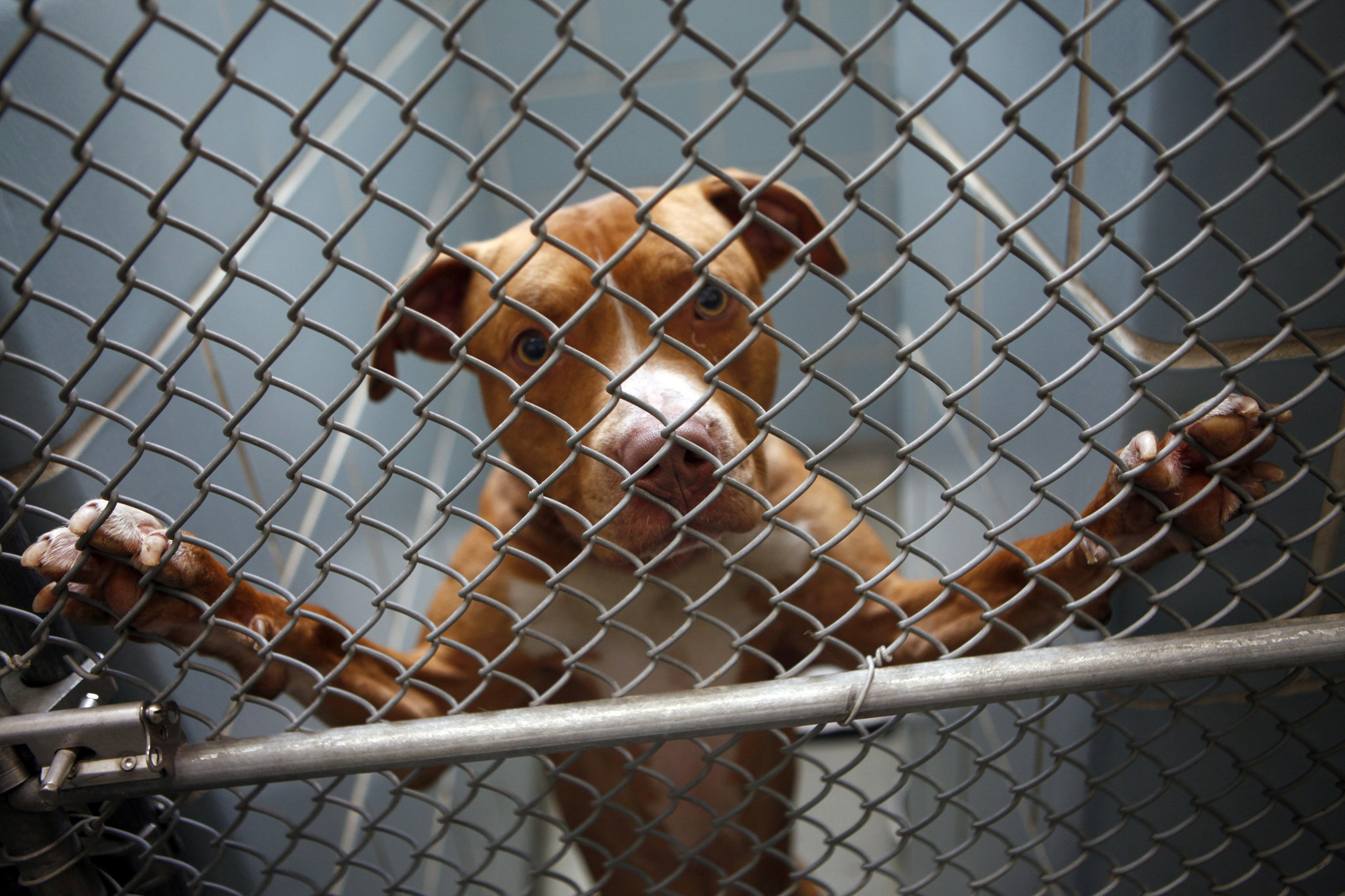- RICHMOND, VIRGINIA
 Four defendants plead guilty to federal dogfighting and conspiracy charges for their roles in an interstate dogfighting network across the District of Columbia, Maryland, Virginia, and New Jersey, officials announced Tuesday.
Four defendants plead guilty to federal dogfighting and conspiracy charges for their roles in an interstate dogfighting network across the District of Columbia, Maryland, Virginia, and New Jersey, officials announced Tuesday.
U.S. District Court Judge John A. Gibney Jr. accepted the following pleas:
- On June 1, Odell S. Anderson Sr., 52, of the District of Columbia, pleaded guilty to one felony count of conspiracy to violate the animal-fighting prohibitions of the Animal Welfare Act by conspiring with others to sponsor and exhibit dogs in a dog fight, as well as to buy, sell, possess, train, transport, deliver and receive dogs for the purposes of having those dogs participate in animal-fighting ventures.
- Additionally, Anderson pleaded guilty to one felony count of causing a child under the age of sixteen to attend an animal-fighting venture;
- On May 10, Emmanuel A. Powe Sr., 46, of Frederick, Maryland, also pleaded guilty to one felony count of conspiracy to violate the animal-fighting prohibitions of the Animal Welfare Act; and
- On April 28, Chester A. Moody Jr., 46, of Glenn Dale, Maryland; and Carlos L. Harvey, 46, of King George, Virginia, each pleaded guilty to the same conspiracy.
 According to court documents filed in connection with the cases, from April 2013 through July 11, 2018, the pleading defendants and their co-conspirators participated in animal-fighting ventures, involving training, transporting, breeding, and dogfighting setups, including at least one specific “two-card” dogfighting event on April 3, 2016.
According to court documents filed in connection with the cases, from April 2013 through July 11, 2018, the pleading defendants and their co-conspirators participated in animal-fighting ventures, involving training, transporting, breeding, and dogfighting setups, including at least one specific “two-card” dogfighting event on April 3, 2016.
For that event, Anderson, Powe and Harvey met up with others in the Walmart parking lot in King George, Virginia, and then traveled to another location for a fight, officials stated.
Moody, Powe and Anderson then participated in a pre-scheduled “two-card” dogfight, which involves two separate dogfights with different dogs and handlers.
The dogfighters subjected the dogs to arduous training for several weeks before the fighting event. At least one of the dogs died due to its injuries in this dog fight, according to authorities.
The defendants each also maintained other fighting dogs at their residences, as well as dogfighting equipment including dog treadmills, “medkits,” “breeding stands” (to immobilize female dogs), and chains weighing up to several pounds per linear foot.
Each animal-fighting charge carries a maximum sentence of five years in prison and a $250,000 fine.
The charge against Anderson of taking a minor to attend a dog fight carries a maximum sentence of three years in prison and a $250,000 fine.
“Organized dogfighting — whether on a professional, hobbyist or street fighter level — has no place in our society,” said Acting Assistant Attorney General Jean E. Williams of the Justice Department’s Environment and Natural Resources Division. “Dogfighting is an extremely violent and secretive venture of animal abuse, and bringing young children to these fighting events exposes another generation to indifference towards animal cruelty and disrespect for the law against this ruthless and illegal activity.”
“Dogfighting is absolutely intolerable and callously subjects defenseless animals to inhumane treatment and abuse,” said Acting U.S. Attorney Raj Parekh for the Eastern District of Virginia. “We must protect and care for these animals—not cruelly turn them against each other for profit. Those who engage in this deplorable conduct will face justice to the fullest extent of the law.”
“The provisions of the Animal Welfare Act were designed to protect animals from being used in illegal fighting ventures, which often entail other forms of criminal activity,” said Special Agent in Charge Bethanne M. Dinkins of the U.S. Department of Agriculture-Office of Inspector General (USDA-OIG).
This case was prosecuted as part of Operation Grand Champion, a coordinated effort across numerous federal judicial districts to combat organized dog fighting. The phrase “Grand Champion” is used by dogfighters to refer to a dog with more than five dog fighting “victories.”
The Humane Society of the United States, along with other entities, assisted with the care of the dogs seized by federal law enforcement.

